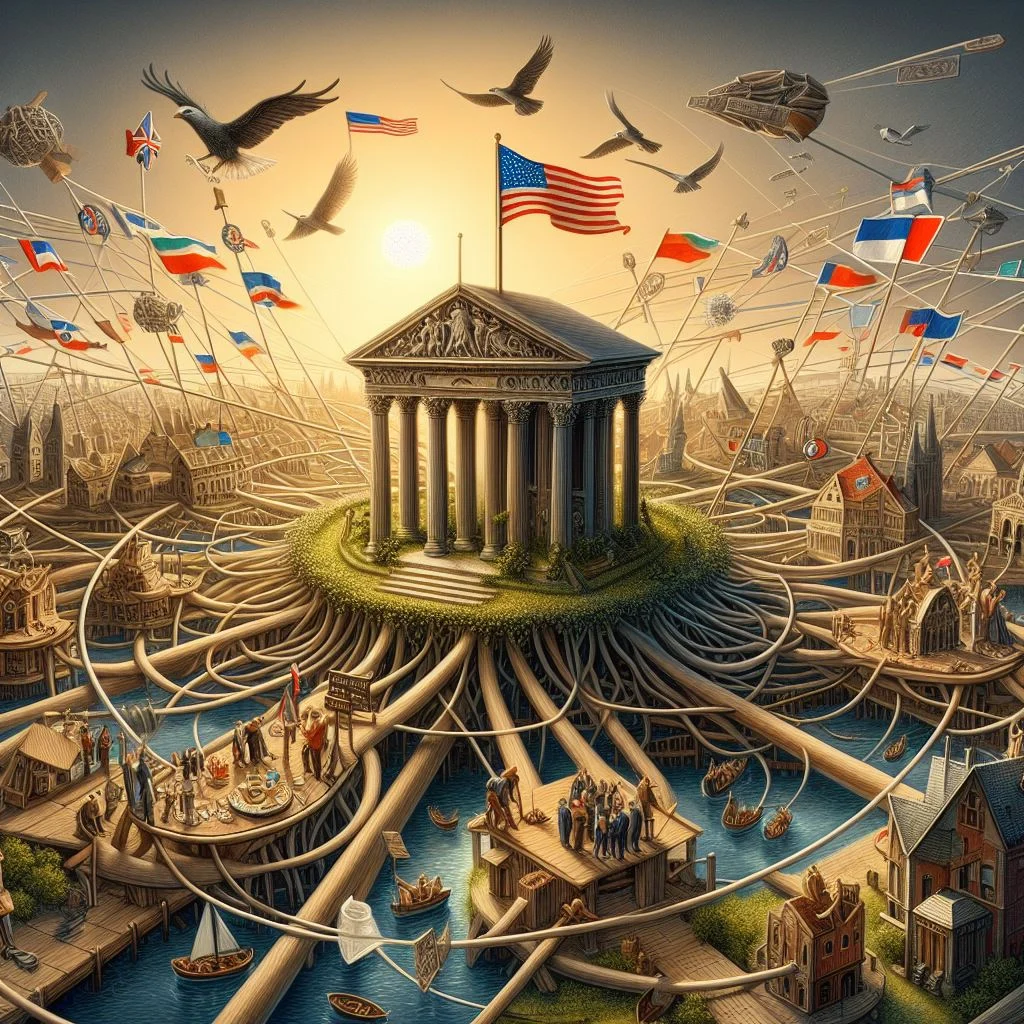jlk – we will discuss the relationship between property and politics, which as it turns out, cannot be easily separated.
Property and politics influence each other and are interconnected, both directly and indirectly. How is this possible? Let’s unpack it together.
Politics encompasses everything related to power, policies, and governance. Politics significantly impacts the social, economic, and legal conditions of a country or region.
Of course, this also affects the property sector, which is one of the crucial assets for society.
There are several ways politics influences property, including:
Government Policies. Governments have the authority to create and enact policies related to property, such as tax regulations, subsidies, regulations, budget allocations, development plans, and so on.
These policies will naturally affect the demand, supply, prices, availability, and quality of properties in the market.
For example, if the government provides tax incentives or subsidies for first-time homebuyers, this will increase demand and house prices.
Conversely, if the government raises property taxes or imposes ownership restrictions, this will decrease demand and property prices.
Political Stability. Political stability is a condition where governance runs smoothly, safely, and democratically, without any conflicts, crises, or disruptions.
Political stability is crucial for creating a conducive investment climate, including in the property sector.
Investors, both local and foreign, will have more confidence and interest in investing their capital in a politically stable country or region because they feel more secure and face lower risks.
Conversely, if there is political instability, such as government changes, demonstrations, coups, wars, or terrorism, investors will reduce or withdraw their investments because they feel unsafe and face high risks.
This will have a negative impact on the property sector, as it will decrease demand, supply, and property prices.
Influence of Politicians. Politicians are individuals involved in political activities, such as parliament members, ministers, governors, regents, mayors, or even presidents.
Politicians have a significant influence on property, both directly and indirectly.
Directly, politicians can exploit their positions or authority to make decisions or take actions that benefit themselves or their groups in the property sector, such as allocating budgets, granting permits, determining locations, or even engaging in corruption, collusion, or nepotism.
Indirectly, politicians can influence public opinion or market sentiment regarding property by issuing statements, promises, or propaganda related to property, such as promising infrastructure development, public housing, or agrarian reform.
This will affect public expectations and behaviors towards property, both positively and negatively.
Property Influencing Politics
Property not only influenced by politics but also influences politics. Property is an important and strategic resource that can be utilized for political interests by governments, politicians, and society. How so?
Property as a Source of Income. Property can be a source of income for governments, politicians, and society through various means, such as taxes, rent, buying and selling, or investment.
Income from property can be used to finance political activities, such as campaigns, lobbying, or bribery. Income from property can also be used to improve the welfare of society, which can influence their political support or preferences.
Property as a Mobilization Tool. Property can be a tool for mobilizing masses by governments, politicians, and society for political purposes.
For example, governments or politicians can use property as a means to garner sympathy or votes from voters by providing assistance, subsidies, or property facilities to the community, especially those less fortunate.
Conversely, society can use property as a tool to demand or pressure the government or politicians by engaging in protests, strikes, or sabotage against government or politician-owned properties, especially those considered unfair or detrimental.
Property as a Symbol of Identity. Property can be a symbol of identity for governments, politicians, and society, which can influence their political orientation or affiliation.
Property can reflect the status, prestige, or power of an individual or group, which can evoke feelings of pride, respect, or fear. Property can also reflect the culture, religion, or ethnicity of an individual or group, which can evoke feelings of love, respect, or hatred.
Property can be a tool to demonstrate or maintain the identity of an individual or group, which can lead to conflict or cooperation with other parties.
From the above explanations, we can see that property and politics have a complex and dynamic relationship that cannot be easily separated. Property and politics influence each other and are interconnected, both directly and indirectly.
Therefore, as players or observers in the property market, we must always be vigilant and wise in facing political phenomena, so as not to get trapped or lost in the labyrinth of property and politics. We hope this article is useful and adds to our insights.
That’s all for now Kisanak.













